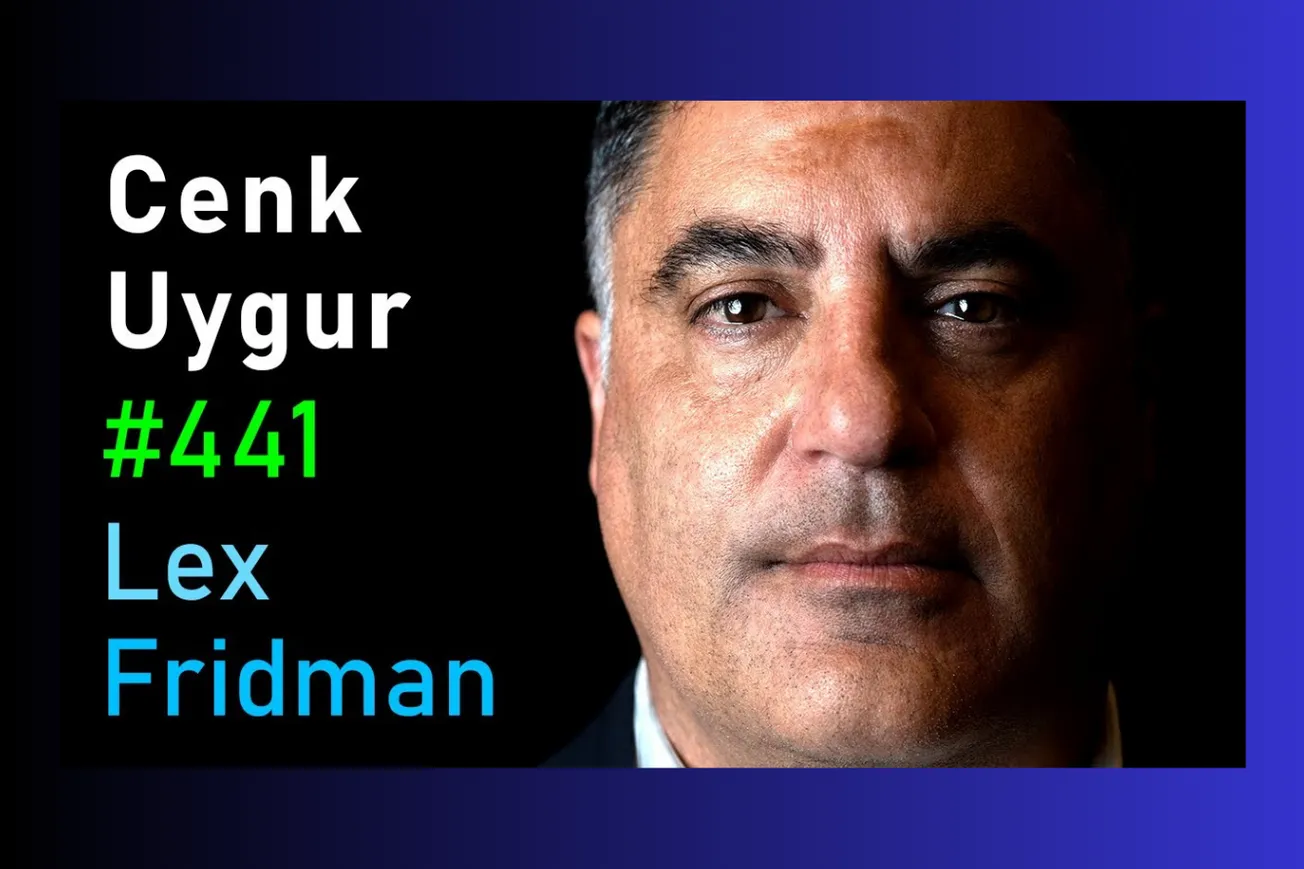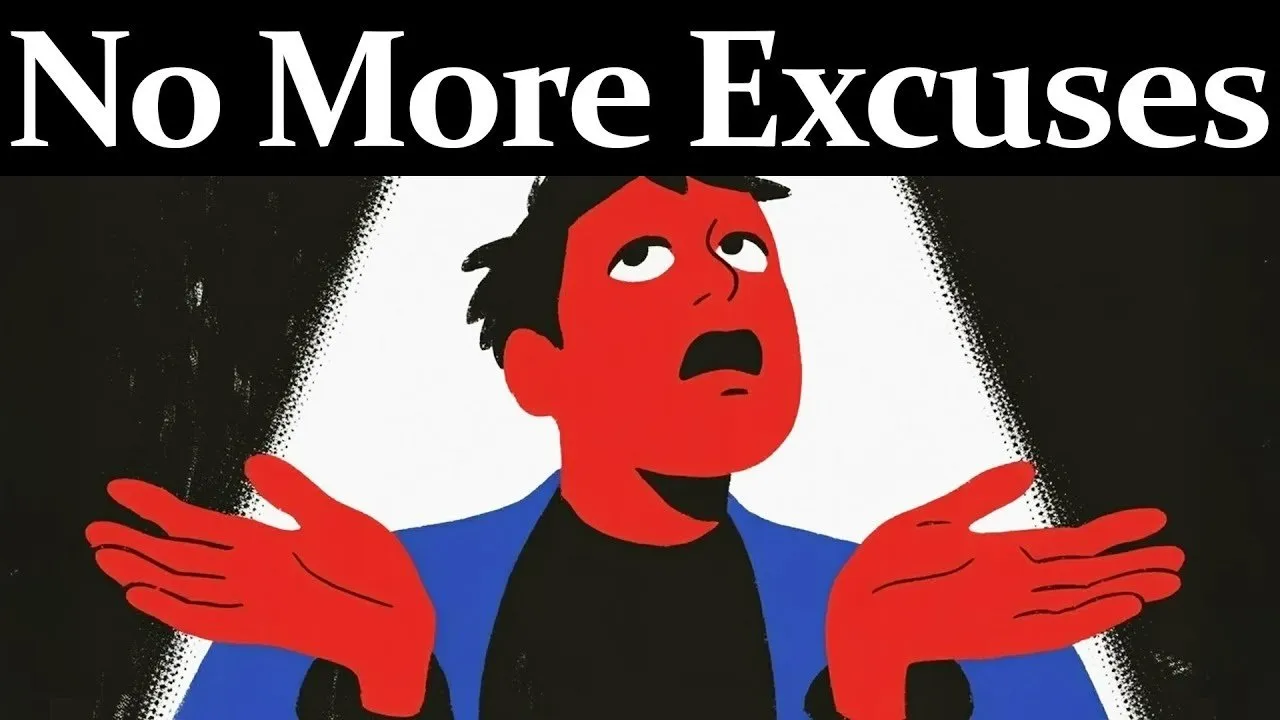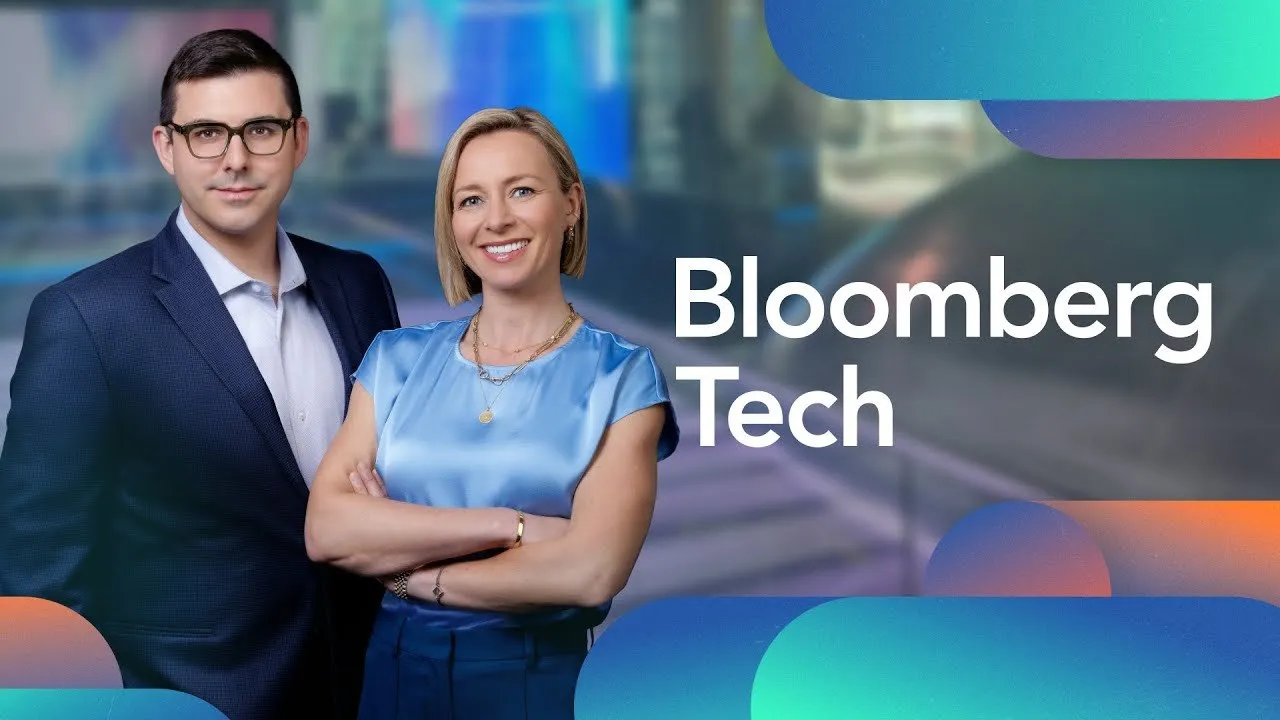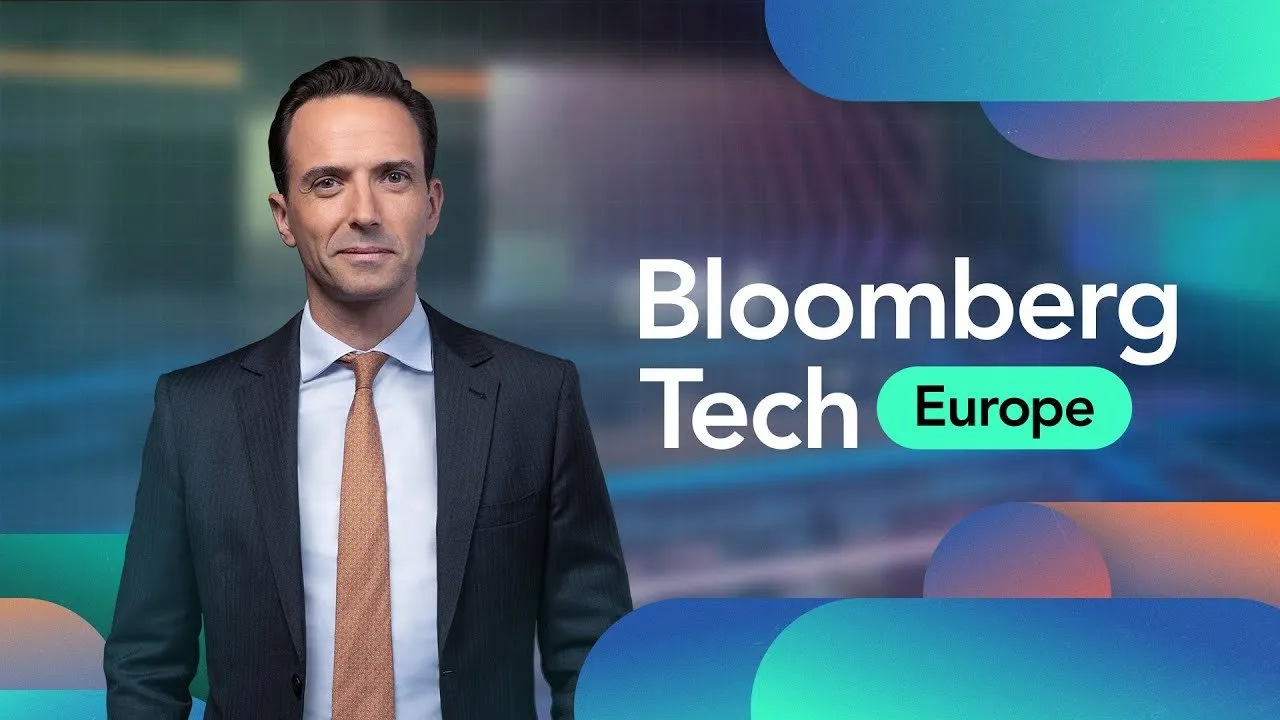Table of Contents
Progressive commentator Cenk Uygur reveals how donor money controls 98% of political decisions and why the real fight isn't left vs right—it's populist vs establishment.
Key Takeaways
- Political corruption isn't about evil politicians—it's about a system where donor money wins 95% of congressional races
- The real political divide today is populist versus establishment, not traditional left versus right
- Mainstream media functions as "the matrix," protecting corporate interests while pretending to serve the public
- Corporatism has replaced capitalism in America, crushing competition and rigging markets for the wealthy
- Constitutional amendments through state conventions could bypass Congress to get money out of politics
- Online media is gradually breaking the stranglehold of corporate-controlled information
- Historical patterns show that empathetic, change-oriented movements always win in the long run
- Trump represents both massive risk and potential system disruption—but the odds favor disaster
- Real solutions require populist left and right to unite against the establishment that divides them
- Hope isn't misplaced—the two-thirds of humanity that values empathy and fairness will ultimately prevail
The Money Problem: How Donors Actually Run Everything
Here's something that'll make your stomach turn: the person with more money wins congressional races 95% of the time. Not 60%. Not 75%. Ninety-five percent.
Cenk Uygur, the progressive firebrand behind The Young Turks, doesn't mince words about this reality. "It's 98% money, 2% principles," he says about how politicians actually make decisions. When people push back and suggest it's maybe 50-50, he's adamant: "No, they have money and this smidge of principles."
Think about what this means. When legislators vote on bills, they're not weighing what's best for constituents. They're following a simple formula: follow the money. Uygur claims his team can predict legislative outcomes with startling accuracy just by tracking donor interests.
- The carried interest loophole exemplifies the rigging—billionaire hedge fund managers pay the same tax rate as someone making $84,000 a year
- Big Pharma has become the number one donor in Washington, which explains why we can't negotiate drug prices
- Defense contractors maintain their influence through the revolving door between Pentagon and private sector
- Even local politics gets corrupted, like car dealerships blocking Tesla from selling directly to consumers in multiple states
"They passed a law saying that you have to sell through dealerships, but Tesla doesn't sell through dealerships," Uygur explains about New Jersey's anti-Tesla legislation. "It was intended to bully, intimidate, and push out Tesla out of the market." The fix? Elon came in with campaign contributions and reversed it. "So now we're in a battle where it's an open auction."
The Facebook story perfectly illustrates how this works. Initially, Facebook spent almost nothing on politics and got hammered in congressional hearings. Then they hired Republican consultants, greased both parties, and suddenly "we're no longer talking about Facebook at all and Facebook are angels."
Corporatism vs Capitalism: The Great Shell Game
Most people think we live in a capitalist system. We don't. We live under what Uygur calls "corporatism"—and understanding the difference is crucial.
Real capitalism loves competition and free markets. Corporatism hates competition and wants monopoly power. "The most important distinction is that corporatism hates competition. It wants monopoly and oligopoly power. Whereas capitalism loves competition and wants the free markets."
- True capitalism requires government protection against monopolies—Adam Smith himself said you must protect against monopoly power
- Corporatism slowly rigs rules in favor of big corporations through lobbying and regulatory capture
- No-bid contracts, preventing Medicare from negotiating drug prices, and massive corporate subsidies are all corporatist policies
- Small businesses get crushed while giant corporations get bailouts and tax breaks
- The system creates "indentured servants of corporations" rather than free market participants
The shell game works like this: extreme corporatists like Joe Manchin and Mitch McConnell get labeled as "moderates" by mainstream media, even though their positions poll at 33% or less. Meanwhile, actually popular policies like paid family leave (84% support) get dismissed as radical.
"Joe Manchin is not at all a moderate," Uygur insists. "You're against paid family leave, that polls at 84%. So you're a radical corporatist who say that women should be forced back into work the day after they have birth."
We're witnessing the final stages of this takeover. Private equity is buying up residential real estate, and once they control housing, "we're screwed, we're indentured servants forever." The window for change is closing fast.
Media as the Matrix: Manufacturing Consent for Corporate Rule
If money in politics is the disease, mainstream media is the delivery system. Uygur calls corporate media "the matrix" whose job is "to delude you into thinking corporate rule is great for you and we should never change it."
The mechanics are simpler than most people realize. Where does all that political money go? "Almost all of it goes into corporate media, mainstream media, television, newspapers, radio." In 2022, a midterm election year, $17 billion got spent on campaigns. Nearly all of it flowed to media companies as advertising revenue.
- Media companies know politicians and parties are their biggest clients, so they never really criticize the system
- The bias isn't left vs right on economic issues—it's pro-corporate across the board
- When economic bills come up, Fox News and MSNBC suddenly agree: don't touch beloved corporations
- Advertising money isn't just about the ads—it's about buying friendly coverage in the "free media"
- Outsiders get the "needle in a haystack" treatment where media finds the worst moments from their entire history
A former MSNBC reporter told Uygur about a general manager who literally said: "You see all this? Money in politics paid for that" while pointing to the newsroom. The message was clear: don't bite the hand that feeds you.
The treatment of Bernie Sanders exemplifies this perfectly. In 2015, as he mounted a historic challenge to Hillary Clinton, ABC gave him exactly seven seconds of coverage for the entire year. "They just will not put you on," Uygur explains. "That is the number one way they rig an election."
The Constitutional Solution: Going Around Congress
Getting money out of politics sounds impossible when the corrupted politicians would have to vote themselves out of power. But the founders were geniuses—they included a backup plan.
Article V of the Constitution allows two-thirds of state legislatures to call a convention to propose amendments, bypassing Congress entirely. Then three-quarters of states must ratify any proposed amendment. It's difficult by design, but there's one issue that could unite the country: 93% of Americans believe politicians serve donors over voters.
- Uygur's Wolf PAC successfully got five states to call for a convention before Democrats pushed back
- The amendment would end private financing of elections and corporate personhood
- Public financing would align politicians' incentives with voters instead of donors
- Corporate personhood gives companies constitutional rights they were never meant to have
- The Founding Fathers actually hated corporations and warned against them repeatedly
"You need the cops to protect you, and that's the government," Uygur argues. "But you also need cops on Wall Street, because if you allow insider trading, the powerful are gonna rob you blind and the little guy's gonna get screwed."
Term limits could be part of the package. Corrupt systems always have old politicians hanging around because they provide "return on investment" to donors. Fresh blood with actual principles becomes a threat to the whole arrangement.
Why Online Media Changes Everything
Here's where hope enters the picture. The stranglehold of corporate media is breaking, and it's happening faster than most people realize.
Uygur predicted in 1998 that "online video is gonna be television." His friends thought he was nuts—this was still the dial-up era. But the logic was simple: when you remove gatekeepers, the wisdom of the crowd produces better content than corporate programming designed to serve advertisers and politicians.
- Traditional media is dying financially—cable subscriptions have dropped from 100 million to around 70 million households
- Costs stayed high while revenue plummeted, creating an unsustainable business model
- Online creators have to actually engage audiences instead of just reading from teleprompters
- "When mainstream media has you hooked, you got no hope because you don't have the right information"
- The online world is chaotic but "within that chaos, the truth begins to emerge"
The Young Turks became the first YouTube partner and has survived dozens of attacks from other creators precisely because they stick to truth over ideology. "Our competition's a graveyard," Uygur notes, because audiences eventually recognize genuine independent thinking over audience capture.
The transition won't be smooth. Drama farming and conspiracy theories get clicks, making the information environment messier. But the biggest genuine voices—Joe Rogan, Lex Fridman, even The Young Turks—succeed by being authentic rather than sensational.
The Historical Pattern: Change Always Wins
Despite everything looking dark right now, Uygur maintains profound optimism about the future. His reasoning is both philosophical and empirical.
Humans are wired for consent, not domination. Even in chimpanzee societies, leaders win not through violence but by building coalitions—picking lice off other chimps, sharing food, doing favors. "What they're gathering is the consent of the governed."
- Throughout history, roughly two-thirds of people favor empathy, sharing, and fairness over pure selfishness
- The one-third that says "me, me, me" often wins in the short term because they accumulate more money and power
- But the species requires consent, so the empathetic majority ultimately prevails
- Every major progressive victory—ending slavery, women's suffrage, civil rights, gay marriage—followed this pattern
- Conservatives play an important balancing role, but they're "destined to lose" because they fight against necessary change
The founding fathers defeated the British monarchy. The civil rights movement overcame centuries of oppression. Women won the right to vote. Marriage equality became law. "Change always wins," Uygur insists. "In the long tide of history, change always wins."
His family story captures this perfectly. His ancestor was the Ottoman admiral who conquered Constantinople by doing something everyone said was impossible—moving an entire fleet overland to bypass the harbor's defenses. When the sultan asked daily about progress, grandpa always answered: "slowly" (yavaşça in Turkish).
That's how all meaningful change happens: gradually, then suddenly. The corporate stranglehold on American democracy feels overwhelming right now, but the fundamentals are shifting. Online media is breaking information monopolies. Young politicians are refusing corporate PAC money. People are waking up to how rigged the system really is.
The two-thirds of humanity that values empathy and fairness will win in the end—as long as we keep fighting. The question isn't whether change will come, but whether we'll be part of making it happen.





